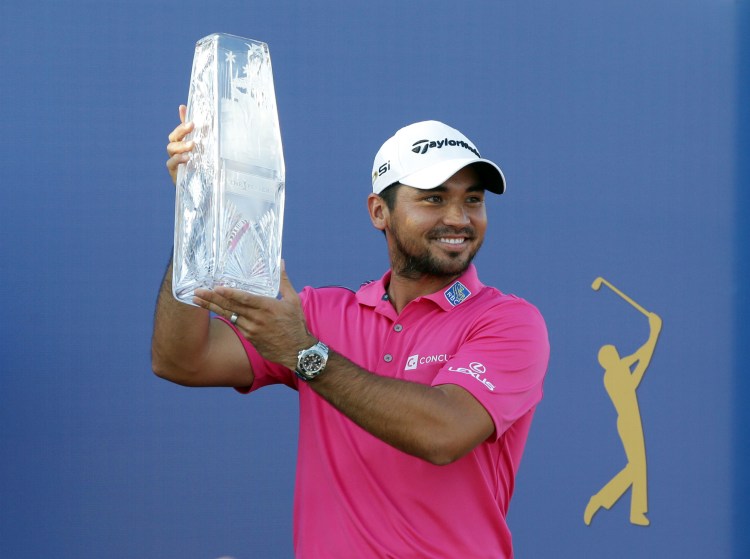The sport has lost two of its biggest stars in the last week, adding to the perception that the Olympics are not a high priority. Rory McIlroy, a four-time major champion, also said Zika will keep from competing in Rio de Janeiro.
“The sole reason for my decision is my concerns about the possible transmission of the Zika virus and the potential risks that it may present to my wife’s future pregnancies and to future members of our family,” Day said in a statement. “I have always placed my family in front of everything else in my life.”
Day and his wife, Ellie, had their second child in November, and he has said they want more children.
Also Tuesday, Shane Lowry of Ireland said he would withdraw because of the Zika virus.
Lowry, who got married in April, said he wants to start a family and soon and he received “firm medical advice” from doctors in Dublin that he should not go to Rio. He joins Rory McIlroy as the top two Irish golfers who won’t be in the Olympics because of Zika concerns.
That means Padraig Harrington at No. 159 in the world and Seamus Power (No. 283) would play for the Irish flag in Rio.
“There’s too much of a gray area for me,” Lowry said. “There’s not a 100 percent way of saying you have it or you don’t have it when you get back, so that’s a problem for me and my wife, especially. If I came back from Rio and was able to say 100 percent that I didn’t have it? Then it might be a different story.”
Day and Lowry are the fifth and sixth golfers to withdraw from the competition. The others are McIlroy, Charl Schwartzel, Branden Grace and Marc Leishman, whose wife’s immune system has not fully recovered after she nearly died last year of toxic shock syndrome.
American cyclist Tejay van Garderen is among a handful of athletes outside of golf who also cited Zika as the reason behind not going to Rio. Basketball star Stephen Curry didn’t specifically cite Zika but noted that “other factors” played a role in his decision to skip the games.
Brazil has been the hardest hit of the approximately 60 countries that have reported an outbreak of Zika, the mosquito-borne virus linked to severe birth defects and possible neurological problems in adults.
Day first expressed concern a month ago at the Memorial and said he had been consulting doctors so he could make a smart choice.
“Medical experts have confirmed that while perhaps slight, a decision to compete in Rio absolutely comes with health risks to me and to my family,” Day said. “While it has always been a major goal to compete in the Olympics on behalf of my country, playing golf cannot take precedent over the safety of our family. I will not place them at risk. … I hope all golf and Olympics fans respect and understand my position.”
Australia has three players in the top 50 in the world, and all of them have withdrawn — Day, Adam Scott (No. 8) and Leishman (No. 39). Next in line would be Scott Hend (No. 75) and Marcus Fraser (No. 81).
Day had been among the strongest proponents of competing in the Olympics, as had McIlroy and other young stars. But as the July 11 deadline nears for qualifying for Rio, some top golfers have been wavering.
Among the stars who plan to play or have not decided are Jordan Spieth, U.S. Open champion Dustin Johnson, Bubba Watson, Henrik Stenson of Sweden and Masters champion Danny Willett of England.
Golf already has lost three of the top 10 players in the world. Scott was the first to withdraw. He said Olympics were never his priority in a year in which the schedule is crammed with major championships with far more historical significant than an Olympic medal.
The sport has not been part of the Games since 1904 in St. Louis.
Louis Oosthuizen of South Africa cited scheduling concerns when he withdrew. Vijay Singh of Fiji briefly mentioned Zika but was more bothered by the schedule. Graeme McDowell, who was in line to replace McIlroy, withdrew late last week because his wife is due with their second child a few weeks after the Olympics and he did not want to be out of the country in the weeks leading to the birth.
Send questions/comments to the editors.


